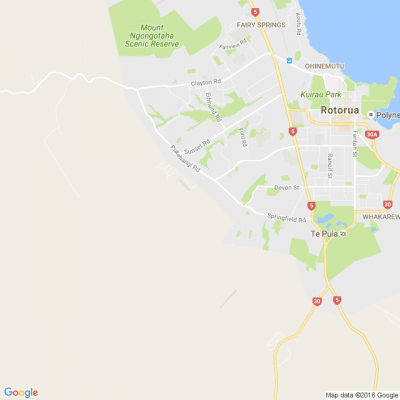
Know what’s happening
Access the private noticeboard for verified neighbours near you. Keep informed about any suspicious activity, send urgent updates to your neighbours when required and discuss emergency planning.
Get to know your neighbours
Browse the directory and start getting to know your neighbours. Don’t want to post to the whole neighbourhood? Send a private message.
Buy, sell and give away
Want to declutter your garage? Buy some used household items? Give away some garden stuff? Become a verified neighbour to browse and post items for sale. Trading is simple when everyone lives nearby.

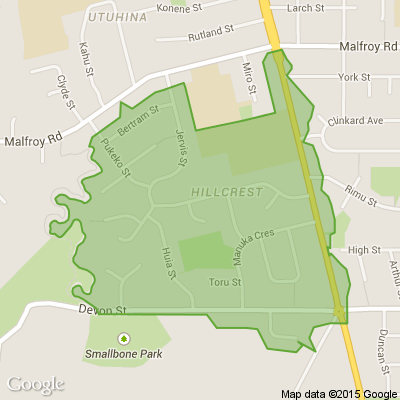
Got some bits to give away?
Clear our that garage and pop it on Neighbourly Market for free.

Thank you for using Neighbourly
You may receive an email confirmation for any offer you selected. The associated companies will contact you directly to activate your requests.
Susan Teirney from Rotorua Sulphur City Lions Club
Come on down to the Arawa Park Racecourse to get those books that you have been looking for.
Good reading for the School Holidays.
Open today Saturday until 4pm.
Sunday 9am - 1pm
Cash Only.
The Team from
Hi Neighbours,
Spring is here! Head down to your nearest Red Cross Shop and check out our new season stock!
We can't wait to see you!

Mei Leng Wong Reporter from NZ Gardener & Get Growing
In this week’s issue we say avocados are the fruit we all long to grow. It’s time to plant salad greens in containers, inspire junior gardeners, turn lawns into new garden beds and repot and feed hippeastrums.
We list 10 trees to plant to attract birds to your garden for shelter and a … View moreIn this week’s issue we say avocados are the fruit we all long to grow. It’s time to plant salad greens in containers, inspire junior gardeners, turn lawns into new garden beds and repot and feed hippeastrums.
We list 10 trees to plant to attract birds to your garden for shelter and a year-round food supply. Plus go in the draw for fertiliser and soil enhancer from Fodda and there’s another chance to win Mr Fothergill’s ultimate garden pack.
Delivered every Friday to your email inbox, Get Growing digital magazine offers seasonal gardening advice from the NZ Gardener magazine's team of experts. Each week we answer all your burning questions on raising fruit and veges and tell you the top tasks to do in your backyard this weekend. Subscribe here:

Robert Anderson from Curtain Clean Rotorua
Seam Slippage is one of four key topics (others include Abrasion Resistance, Pilling, and Colourfastness) that we are covering to provide some background as to how we test and why.
Test results provide us with critical information about textile’s durability and suitability for certain … View moreSeam Slippage is one of four key topics (others include Abrasion Resistance, Pilling, and Colourfastness) that we are covering to provide some background as to how we test and why.
Test results provide us with critical information about textile’s durability and suitability for certain applications. We externally test all James Dunlop and Mokum textiles in Melbourne at a highly reputable laboratory who are amongst the most conservative and stringent in the world, due to the extremely harsh environmental conditions we face here in Australia and New Zealand.
We have gathered a number of frequently asked questions relating to seam slippage, so we asked our Mokum Studio designers Stephanie Moffitt and Annie Moir to share their expert knowledge.
Seam slippage is another equally important upholstery test, can you explain what seam slippage actually means?
Seam slippage is the separation or pulling apart of yarns in a fabric usually along a sewn seam or join. More often than not, the yarns don’t actually break they just separate and leave an unsightly gap along the fabric join.
What are the most common causes for seam slippage?
Seam slippage may be the result of a poorly constructed textile and /or the use of defective yarns in the fabric. But more commonly it is due to an inadequate standard of upholstery manufacturing i.e. a display of insufficient seam allowance, a deficient number of stitches in the seam or failure to overlock raw edges during the upholstery process – or a combination of all three factors.
Seam slippage usually occurs on joins that are subjected to heavy load and pressure such as seat cushions and arm rests. Certain furniture styles put more stress on fabric seams such as tub chairs and furniture with a fixed back or seat cushions.
Can composition play a part in seam slippage?
Yes, it can, Linen for example is loved for being a smooth lustrous fibre, but this can make it more susceptible to seam slippage with heavy load. For some linen textiles we would recommend discussing the need for reinforcing upholstery seams with your upholstery manufacturer.
The note “reinforce upholstery seams” is sometimes listed on our sampling specifications – what does it actually mean? Should we assume the fabric is inferior quality?
Firstly, no it doesn’t infer inferior quality. If we’ve specified it as being suitable for upholstery then it is fit for purpose, but we recommend additional seam support for that particular textile.
“Reinforce upholstery seams” simply means using an additional safeguard by stitching a tape along the seam to prevent fraying in high load areas, such as the corner back cushions. Overlocking should be used for loose woven fabric and seated cushion seams.
What’s the remedy for seam slippage? Can you fix it once it starts?
It is difficult to repair seam slippage once it starts. In almost all instances of seam slippage, it will require the furniture to be recovered, or re upholstered. It’s important to ascertain the cause of the seam slippage. If the seam slippage can be identified as being a result of inadequate manufacturing, you’ll need to work with the upholsterer to ensure appropriate manufacturing techniques are being used, including reinforcing seams if required. If the seam slippage is clearly related to the fabric, the furniture would need to be recovered, either from a different batch (if it’s an isolated batch issue) or selecting an alternative fabric which is more suitable for that particular frame.
Can you explain how the seam slippage test is performed?
The test measures how resistant a fabric is to yarns opening/ slipping under pressure along a seam line. Two fabric swatches are sewn together with a standardised seam. The swatches are pulled apart with an equal and opposite force. The test is performed in both warp and weft directions. Any seam opening is then measured while the fabric swatches are being pulled apart. According to the Australian standard, a seam opening should be less than 6mm at maximum force. A lower result indicates a smaller opening and thus a better resistance against seam slippage.
Written by: jamesdunloptextiles.com...
RetroFit Double Glazing - Bay of Plenty
What is double glazing? We’ve put together some information that might help you with your research if you're considering getting retrofit double glazing click here to read. If you’re interested, we offer a free no obligation quote click here or call us on 0800 658 658.
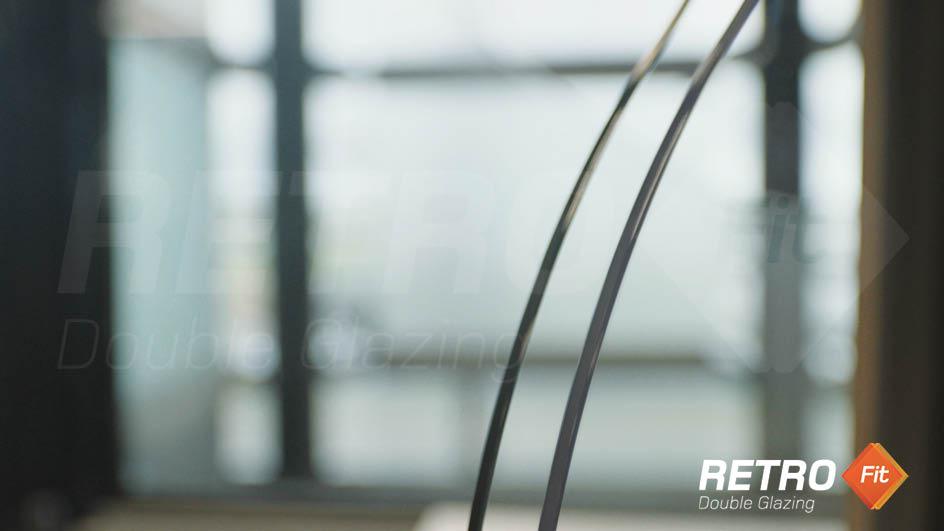
The Team from Resene ColorShop Rotorua
Turn a cardboard lidded hat box into a stylish piece of home décor using Resene testpots, with a tribal twist.
When painting with a tribal theme, throw perfection out the window and embrace crooked lines, texture, and less than perfect paint techniques to get a more organic result.
Make the most… View moreTurn a cardboard lidded hat box into a stylish piece of home décor using Resene testpots, with a tribal twist.
When painting with a tribal theme, throw perfection out the window and embrace crooked lines, texture, and less than perfect paint techniques to get a more organic result.
Make the most of this weekend with this easy step by step project idea from Resene. Find out how to create your own
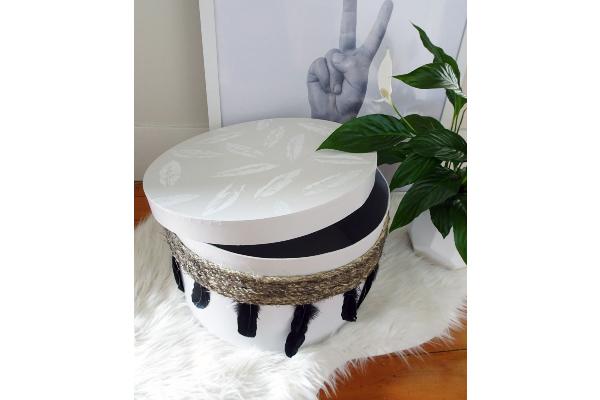
Owner/Operator from R & J Walker Decorators Ltd
This beautiful wall Photomural was imported from Germany and is made up of 8 panels and measures 3m x 2.4m. I really love doing something outside the ordinary and a bit bold.
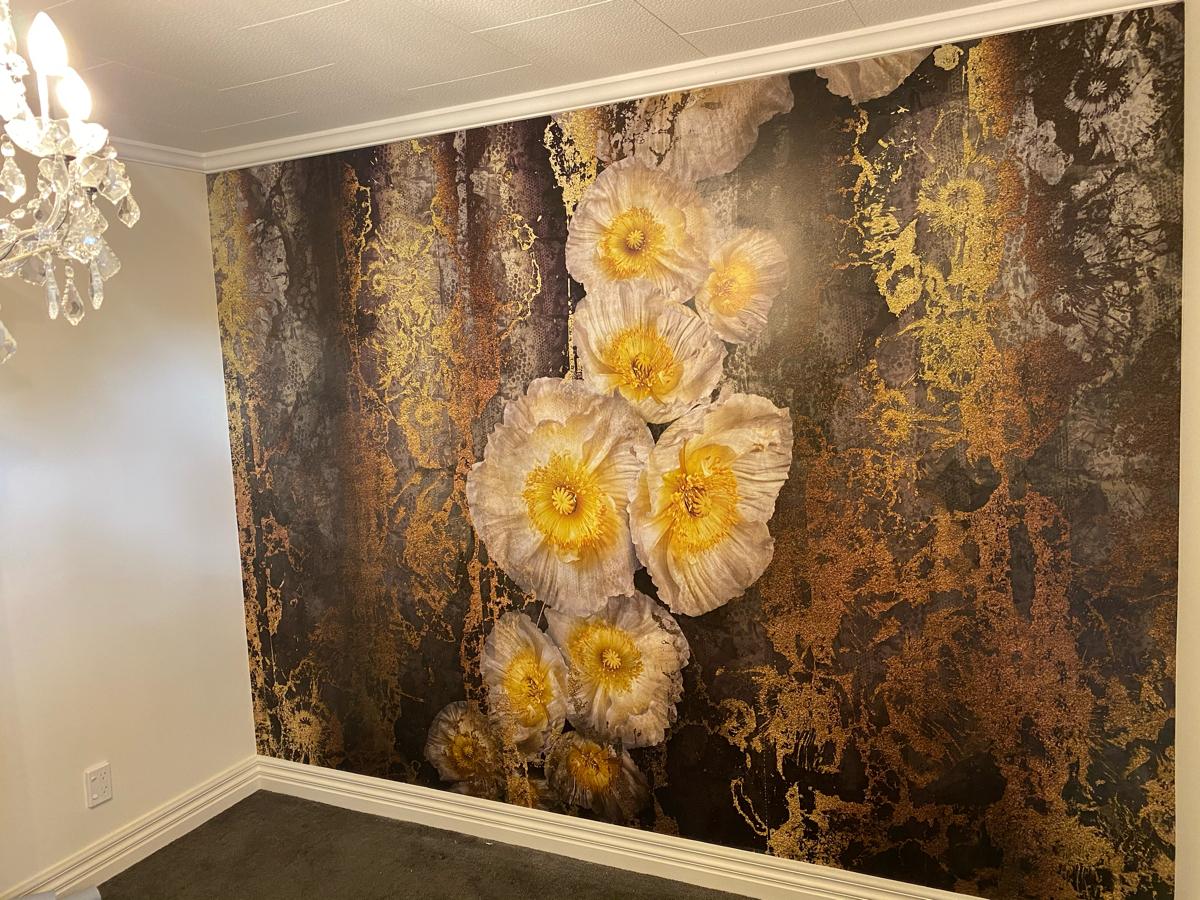
The Team from Neighbourly.co.nz
NZ Sign Language is unique to our country and is one of New Zealand's three official languages, so those are some great reasons to celebrate it!
Check out the Neighbourly team trying their hand at simple greetings that you could sign in your neighbourhood.
David & Laurel from Owhata
Can anyone tell me what this plant is? I found it growing in my vege garden. David
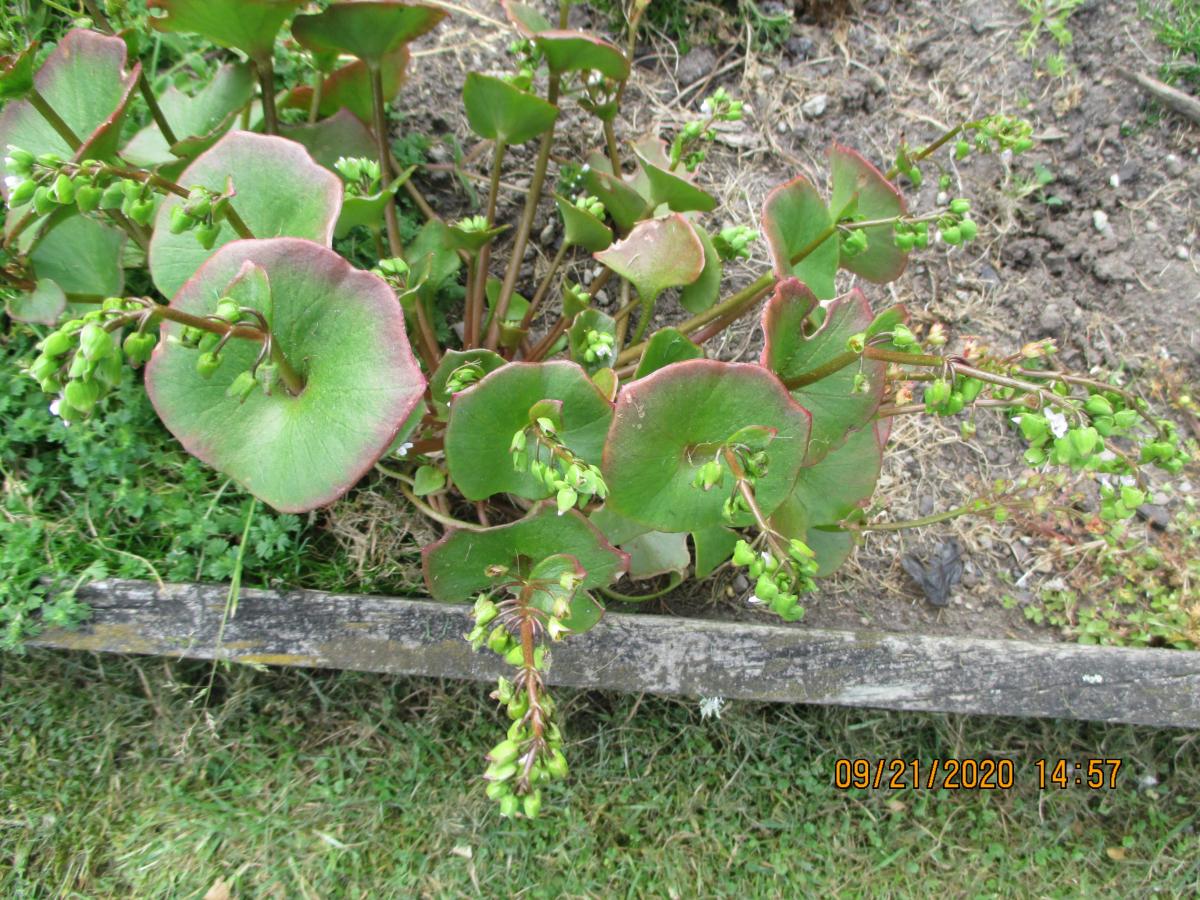
Help us help Plunket support Kiwi kids and their families! Buy any Resene testpot with a colour name starting with P, O or T and Resene will donate $1 to Plunket.
The 10 most common birthdays all appear in the 13-day period from 22 September to 4 October! What better way to celebrate all these … View moreHelp us help Plunket support Kiwi kids and their families! Buy any Resene testpot with a colour name starting with P, O or T and Resene will donate $1 to Plunket.
The 10 most common birthdays all appear in the 13-day period from 22 September to 4 October! What better way to celebrate all these new babies than supporting Plunket to support them.
Every qualifying testpot you buy = a $1 donation to Plunket!
Offer applies until 4 October 2020 at Resene owned ColorShops.
Learn more

Robert Anderson from Curtain Clean Rotorua
• The fleece of sheep has been used to make human clothing since the Stone Age.
• Wool flourishes where there is rain and sunshine. These two elements sustain the grassy fields that sheep graze on. Shearers shave off the wool every year before the weather gets too hot. Wool is the ultimate … View more• The fleece of sheep has been used to make human clothing since the Stone Age.
• Wool flourishes where there is rain and sunshine. These two elements sustain the grassy fields that sheep graze on. Shearers shave off the wool every year before the weather gets too hot. Wool is the ultimate renewable fibre.
• Wool from about 61 sheep extend all the way from the earth to the moon.
• Wool may be made from mixtures of hair from sheep, alpaca, llama, camel, cashmere, mohair, angora, vicuna, yak, guanaco, beaver or otter. No animals are harmed in the harvesting of wool.
• Wool is flame-resistant. It will not melt and stick to your skin like synthetic fibres. Instead, wool will usually smoulder and extinguish itself when the source of the flame has been removed. The fibre of choice for casinos and airlines.
• The fastest recorded time to shear a sheep is 39.31 seconds by Hilton Barrett of Australia.
• Wool is composed of same protein that makes up the outer protective layer of your skin.
• Have you ever wondered why your wool socks withstand foot stench longer than cotton or synthetic socks? Wool is naturally mildew and mould resistant because it is a natural moisture repellent, MEANING LESS STINK. Wool also reduces dust mite activity (they do not like wool!).
• Over its lifetime, a sheep’s fleece will absorb approximately 30Kg of carbon dioxide.
• Renewable, recyclable, and naturally biodegradable; choosing wool minimizes the amount of waste that sits in landfills. Wool biodegrades in weeks to less than 1 year depending on environmental conditions. This is due to its high nitrogen content.
• Wool products can last for 15 to 20 years (or more)
• Wool can absorb indoor contaminants, including formaldehyde, sulphur dioxide and nitrogen dioxide and locks them away in the fibre core. It is naturally soil and stain resistant, attracts less dirt and dust due to anti-static properties and requires less cleaning than synthetic fabrics.
• Wool fibres have a crimped texture so when it’s packed more tightly together lots of tiny pockets of air form. This structure means that it can absorb and release wick away moisture, allowing your skin to breathe so you feel fresh as a daisy.
• Due to its crimped structure, wool is naturally elastic, and so wool garments have the ability to stretch to your shape but can then return to their original state. It is also resistant to tearing and requires less processing to make it useable.
• Wool’s high nitrogen and water content makes it naturally flame resistant. Wool does not ignite easily and will self-extinguish. Should wool burn it does not melt while burning. Wool produces less smoke and toxic fumes during combustion than synthetic fibres, making it a far safer choice.
Daniel from Cantabria Lifecare & Village
Well-known in Rotorua for ensuring our residents feel that this is ‘their home’, Cantabria is set amongst beautifully landscaped gardens just a hop, skip and jump from the town centre where you’ll find all the essentials and more.
We offer everything from physiotherapy, hair salon, health … View moreWell-known in Rotorua for ensuring our residents feel that this is ‘their home’, Cantabria is set amongst beautifully landscaped gardens just a hop, skip and jump from the town centre where you’ll find all the essentials and more.
We offer everything from physiotherapy, hair salon, health checks, scooter bay and convenience shop. We have a range of recreational activities including a singing group, exercise programmes, arts and crafts, quizzes, and social gatherings. Our facility van and coaches are always on hand for outings.
There is a new generation of New Zealander, seeking a new way to live in retirement. They are living their lives with passion and purpose, striving to push further, to create better, to go beyond the ordinary.
A new generation of Kiwis are not retiring from life; they’re finding a new way to … View moreThere is a new generation of New Zealander, seeking a new way to live in retirement. They are living their lives with passion and purpose, striving to push further, to create better, to go beyond the ordinary.
A new generation of Kiwis are not retiring from life; they’re finding a new way to live. One with flexibility, certainty, and the ability to dial care up and down as you need it.
Learn more
Robert Anderson from Curtain Clean Rotorua
Dry your washing outside or in the garage or carport.
Created by New Zealand's Ministry of Health.
www.youtube.com...
Frank from Lynmore
September 19 (Saturday) 9:30am-3:30pm,
address: 33 Selwyn Rd, Lynmore, Rotorua
Home appliances, household daily necessities, kitchenware, tableware, children's toys, clothing, books, garden tools, etc., cheap price, everything must go, some small stuff are available for free and all are on … View moreSeptember 19 (Saturday) 9:30am-3:30pm,
address: 33 Selwyn Rd, Lynmore, Rotorua
Home appliances, household daily necessities, kitchenware, tableware, children's toys, clothing, books, garden tools, etc., cheap price, everything must go, some small stuff are available for free and all are on sale! !!
Negotiable
 Loading…
Loading…
Are you sure? Deleting this message permanently removes it from the Neighbourly website.
 Loading…
Loading…

 By Negotiation
By Negotiation



 Marketed by Lisa Crowe
Marketed by Lisa Crowe

 By Negotiation
By Negotiation



 Marketed by Lisa Crowe
Marketed by Lisa Crowe

 $629,000
$629,000



 Marketed by Lisa Crowe
Marketed by Lisa Crowe
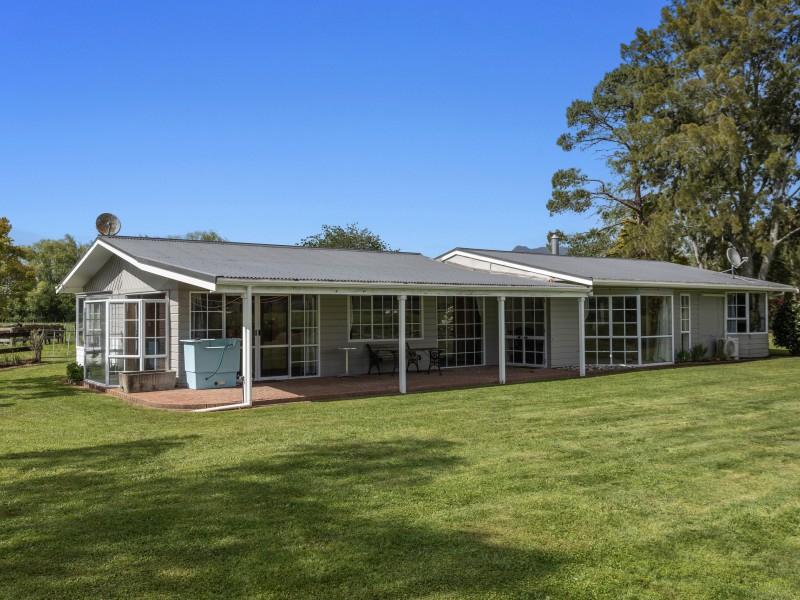
 Buyers $999,000+
Buyers $999,000+



 Marketed by Kirstie Richardson
Marketed by Kirstie Richardson

 Tender
Tender



 Marketed by Kirstie Richardson
Marketed by Kirstie Richardson
© Neighbourly 2024
